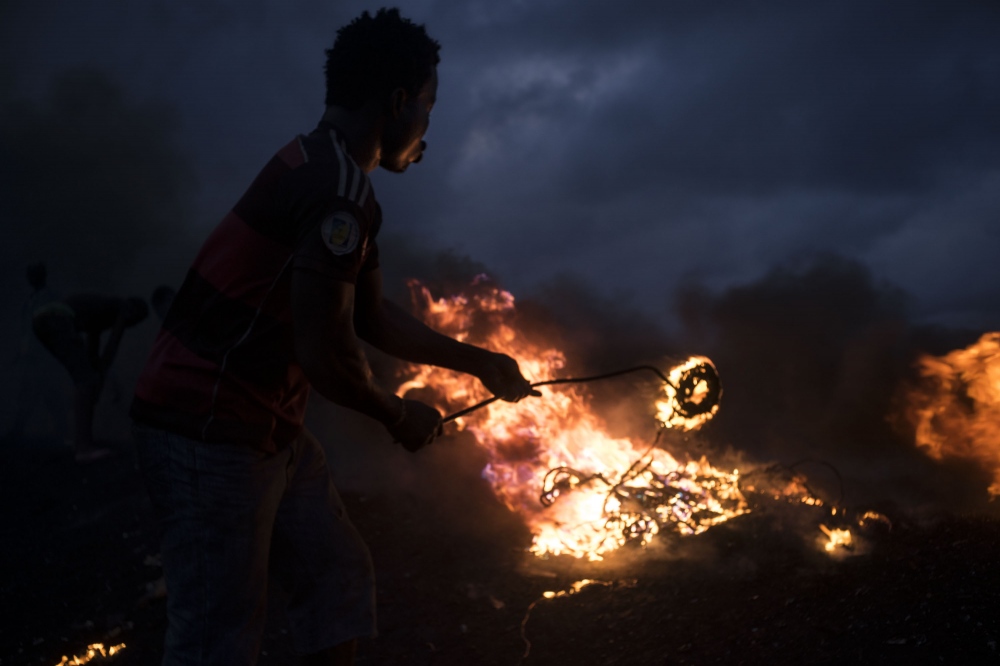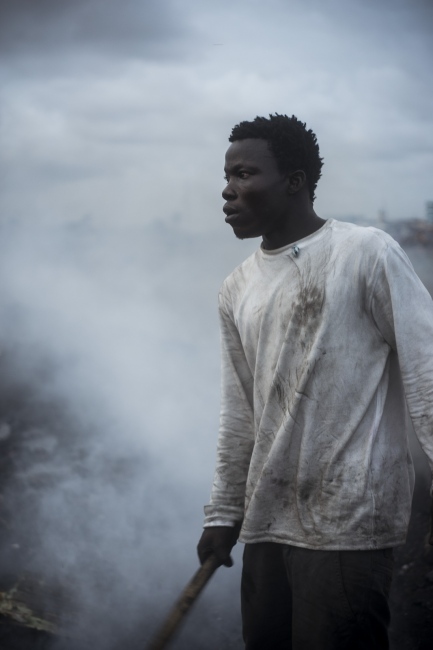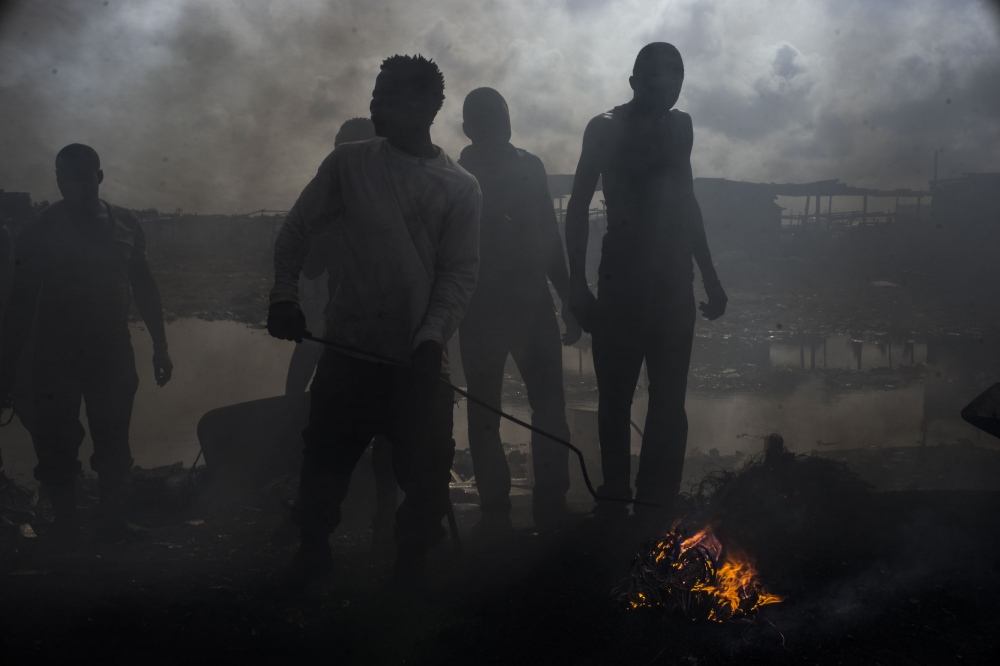Ghana is home to the largest informal recycling industry in Africa. Unskilled workers from Northern Ghana migrate to Ghana's largest city, Accra, to find work. Most migrants settle illegally in Agbogbloshie, the country's largest slum with over 100,000 residents.
Awal Mohammed, a young migrant worker in his early 20's, leads a group of boys in burning imported electronic waste. On Average, each boy earns less than 20 USD a month "“ yet the job poses extreme health risks.
In June, the Accra Metropolitan Assembly demolished the homes of over 20,000 people in Agbogbloshie in order to access and dredge a waterway that had caused flooding in Accra. Awal Mohammed consequently lost his home and his job, forcing him to migrate back to his hometown. These photos document Mohammed's struggle to work and protect his family.
"Agbogbloshie" was not an easy project to work on "“ there were highs and lows "“ but the experience translated to significant personal growth for me. Over the course of six weeks I grew close to Awal Mohammed and his family in the Accra, Ghana slum Agbogbloshie. As he opened up his life to me, I did the same with him. We shared laughter over our language barrier and cultural differences. And when there was a dangerous or concerning situation, Awal was quick to protect and help me.
Many in the Agbogbloshie community believe that no one has the right to photograph them " there is a feeling that too many photographers had made money off of their despair. But Awal helped me to explain to his neighbors that I was documenting their lives and struggles, not profiteering.
A riot broke out in the community after the government demolished some homes in the area, and I found myself in the middle of the action. Salt bullets from riot control police were spit at us, while the sting of tear gas filled our noses. Across from where I was standing, a group of Ghanaians did not understand the motives behind using my camera "“ and, thinking I was taking advantage of the situation, they shoved me to the ground. But Awal explained to the opposing group what I was doing; photographing the injustices committed against them.
They joined with us and suddenly, the group formed a protective tunnel around me. Many of the community members stood in front of my camera, wanting their injustices to be recorded. At that moment I felt more like a documentary photographer than I ever had before. Here was a group of people asking me to give them a voice, and I was able to do so with my camera.
I believe documentary photography should never be one-sided "“ with the photographer separated from their subject's reality by a viewfinder. I think it is necessary to not only give back to the people we are documenting, but to also open yourself to the struggle and pain of those you are advocating for.
To consider donating to this family, please follow this link:
https://www.crowdrise.com/afamilywithoutahome/fundraiser/williammartiniii































